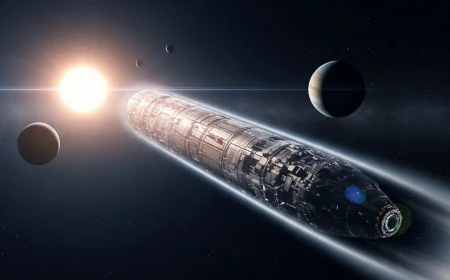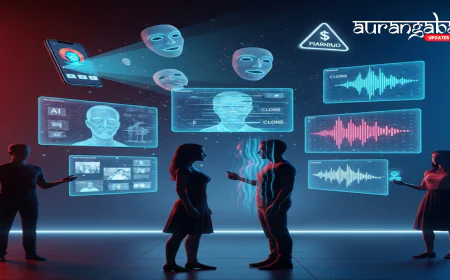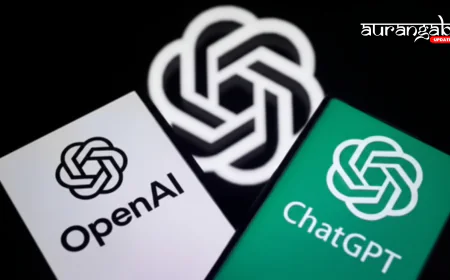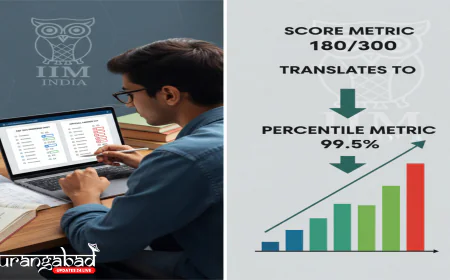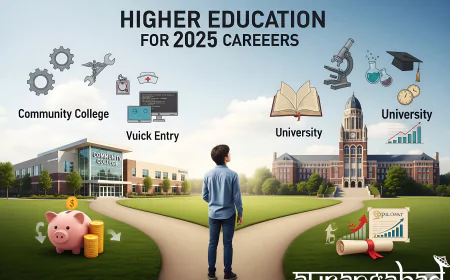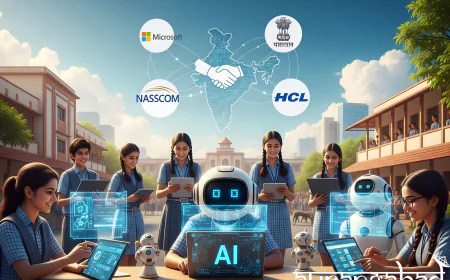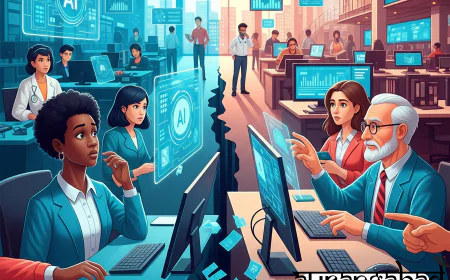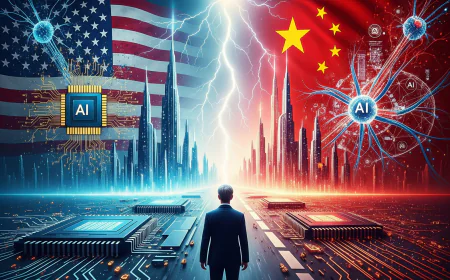Mark Cuban: AI to Create World's First Trillionaire
Billionaire Mark Cuban predicts the world's first trillionaire will emerge from the AI sector, possibly a lone inventor, emphasizing AI's unprecedented transformative power and economic impact.

NEW DELHI, India – In an era where the accumulation of immense wealth has become a subject of global fascination and debate, billionaire entrepreneur and investor Mark Cuban has cast a bold and intriguing prediction: the world’s first trillionaire will emerge not from the ranks of today’s established tech titans, but from the revolutionary field of Artificial Intelligence (AI). Furthermore, he suggests this monumental fortune could be amassed by an unlikely figure – perhaps even "one dude in a basement," a solitary inventor whose groundbreaking AI innovation reshapes industries and human existence in unforeseen ways. This audacious forecast, shared during an appearance on the "High Performance" podcast, fundamentally challenges conventional wisdom about future wealth creation and underscores the unprecedented disruptive potential of AI.
Cuban’s vision deviates sharply from projections that place current billionaires like Elon Musk or Jeff Bezos at the forefront of the trillionaire race. While reports from institutions such as Oxfam and various financial analysts often list these individuals, alongside figures like Larry Ellison, Mark Zuckerberg, and Bernard Arnault, as likely contenders for trillionaire status within the next decade based on their existing wealth trajectories, Cuban posits a different narrative. His conviction stems from a profound belief in AI's unparalleled transformative power. He asserts that we are merely in the "preseason" of AI's capabilities, an nascent stage analogous to the dawn of personal computers, the early internet, or the advent of smartphones. Just as those technologies fundamentally altered daily life and generated unforeseen economic opportunities, AI, Cuban argues, will dwarf all previous technological revolutions in its capacity to create new value. The future trillionaire, in his view, will be someone who discovers an entirely novel application for AI, a utility so pervasive and indispensable that it spawns unimaginable wealth.
To grasp the magnitude of a trillion-dollar fortune is to contemplate an economic scale previously unseen. A trillion dollars ($1,000,000,000,000) is a sum so vast it exceeds the Gross Domestic Product (GDP) of many sovereign nations. The world saw its first billionaire just over a century ago, with John D. Rockefeller achieving that milestone. The progression from millionaire to billionaire took decades, yet the acceleration of technological advancements, particularly in the digital realm, has significantly compressed these timelines. Cuban's prediction implies an even more dramatic acceleration, driven by AI's ability to automate, optimize, and innovate at a scale and speed previously impossible. It's not about incremental improvements; it's about exponential growth powered by intelligence that can learn and adapt at an unprecedented pace, delivering solutions that become globally indispensable overnight. This future trillionaire's wealth will likely derive from providing a critical service or product that leverages AI to solve a universal problem, creating efficiency, convenience, or capabilities that are universally adopted.
Cuban's optimism about AI extends beyond mere wealth creation; he sees it as a powerful force for economic and societal transformation. He has frequently countered dire predictions of mass unemployment, arguing instead that AI will act as a catalyst for overall job growth. While acknowledging that specific roles might be displaced, similar to how technology phased out roles like dictaphone operators and secretaries in the past, he believes AI will generate an entirely new landscape of companies and jobs. The key, he suggests, lies in human adaptation and the development of new skills, particularly "prompt engineering" – the art of effectively communicating with and guiding AI models to achieve desired outcomes. He highlights that AI democratizes knowledge, allowing anyone with the ability to "intelligently ask the AI questions" to access and leverage information that once required advanced degrees or specialized expertise. Cuban himself reportedly used AI to interpret his own heart test results, illustrating how the technology can empower individuals in critical personal areas like healthcare. This accessibility, he believes, levels the playing field for entrepreneurs, reducing barriers to entry and fostering a new wave of innovation across diverse sectors, as evidenced by reports indicating AI adoption boosts revenue for small and medium businesses.
However, Cuban is also pragmatic about the challenges and ethical considerations accompanying AI's rapid advancement. He acknowledges the "darker sides" of the technology, including the potential for job displacement in specific sectors (even if overall employment grows), the proliferation of misinformation through sophisticated deepfakes and fake news, and the significant environmental footprint of training large AI models. For instance, studies have shown that training a single large language model like GPT-3 can consume electricity equivalent to powering a substantial number of homes for an entire year. These concerns underscore the critical need for responsible AI development, ethical guidelines, and robust frameworks to ensure the technology serves humanity positively. Cuban's advice to individuals is not to fear AI, but to engage with it critically and creatively, always validating its outputs, as AI is not "thinking" or "smart" in the human sense but rather excels at processing and packaging information.
For those looking to navigate this evolving landscape, Cuban's recommendation is simple yet profound: "just start." He encourages everyone to download and experiment with available AI tools like Google Gemini or ChatGPT, to ask questions, and to explore their capabilities. This hands-on approach is essential for individuals and businesses alike to adapt, innovate, and thrive in an AI-driven future. The industries most ripe for the kind of disruption that could spawn a trillionaire include personalized medicine, where AI could custom-design treatments based on individual genetic profiles; advanced materials science, leading to revolutionary products; hyper-efficient logistics that eliminate waste and optimize global supply chains; and truly intelligent automation that extends far beyond current robotic capabilities, seamlessly integrating into every facet of life and industry.
In, Mark Cuban's prediction serves as a compelling reminder that the biggest breakthroughs often come from unexpected places and through novel applications. His vision for the world's first trillionaire, driven by a solitary genius harnessing the immense power of AI, paints a vivid picture of a future where technological ingenuity redefines wealth, reshapes economies, and profoundly impacts human society.

